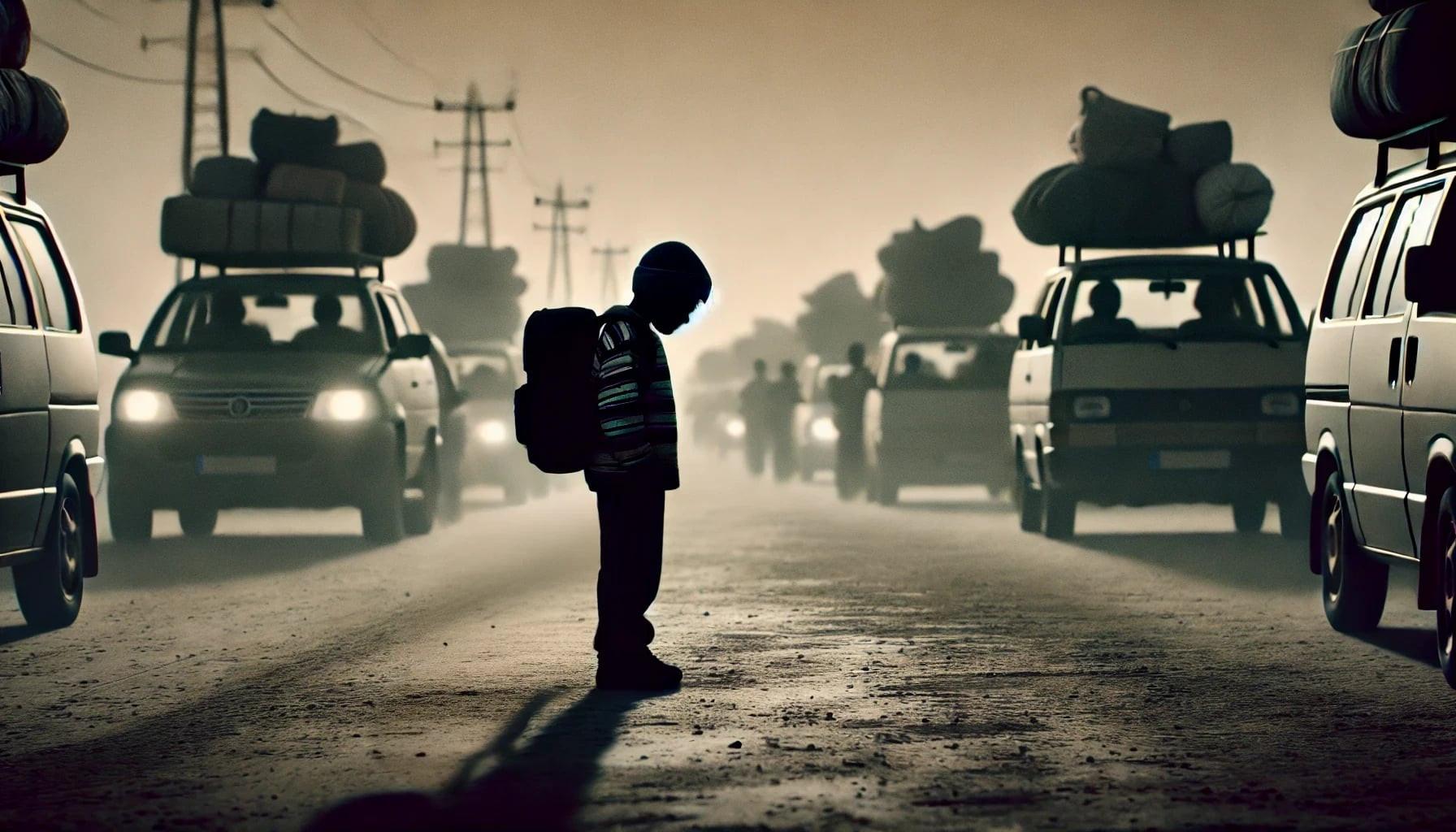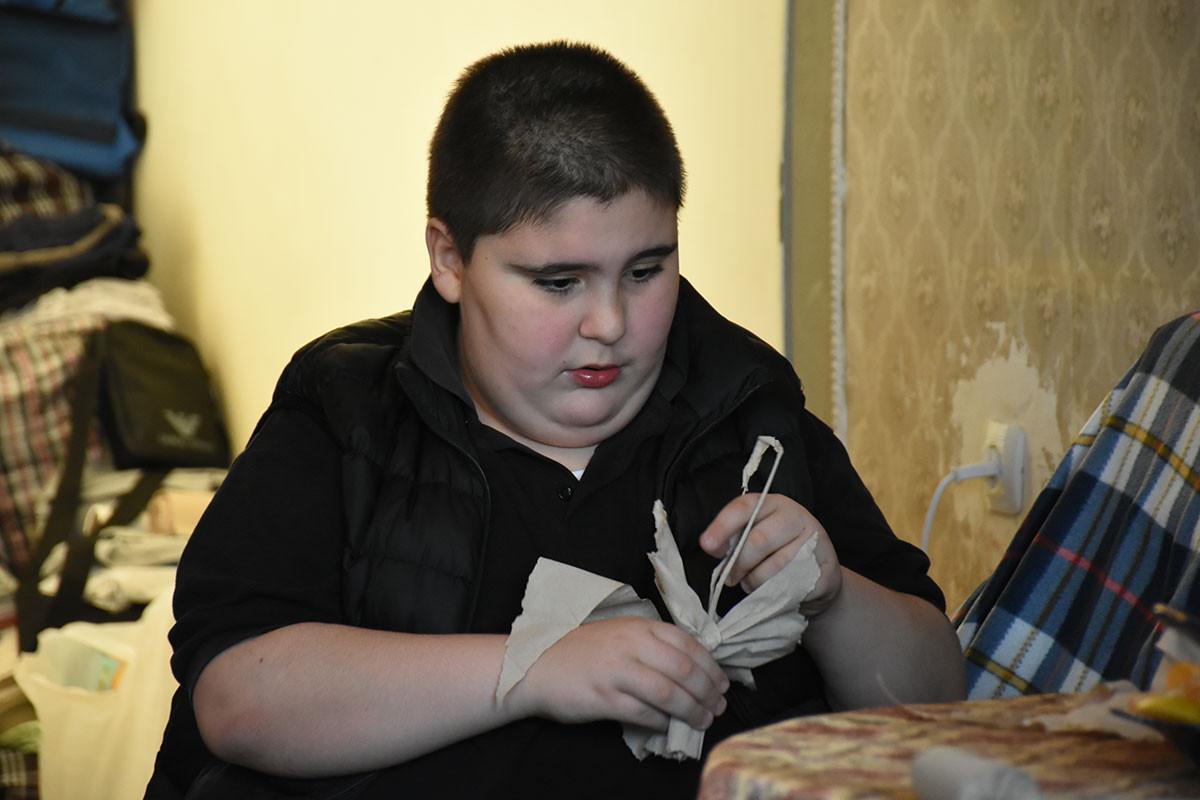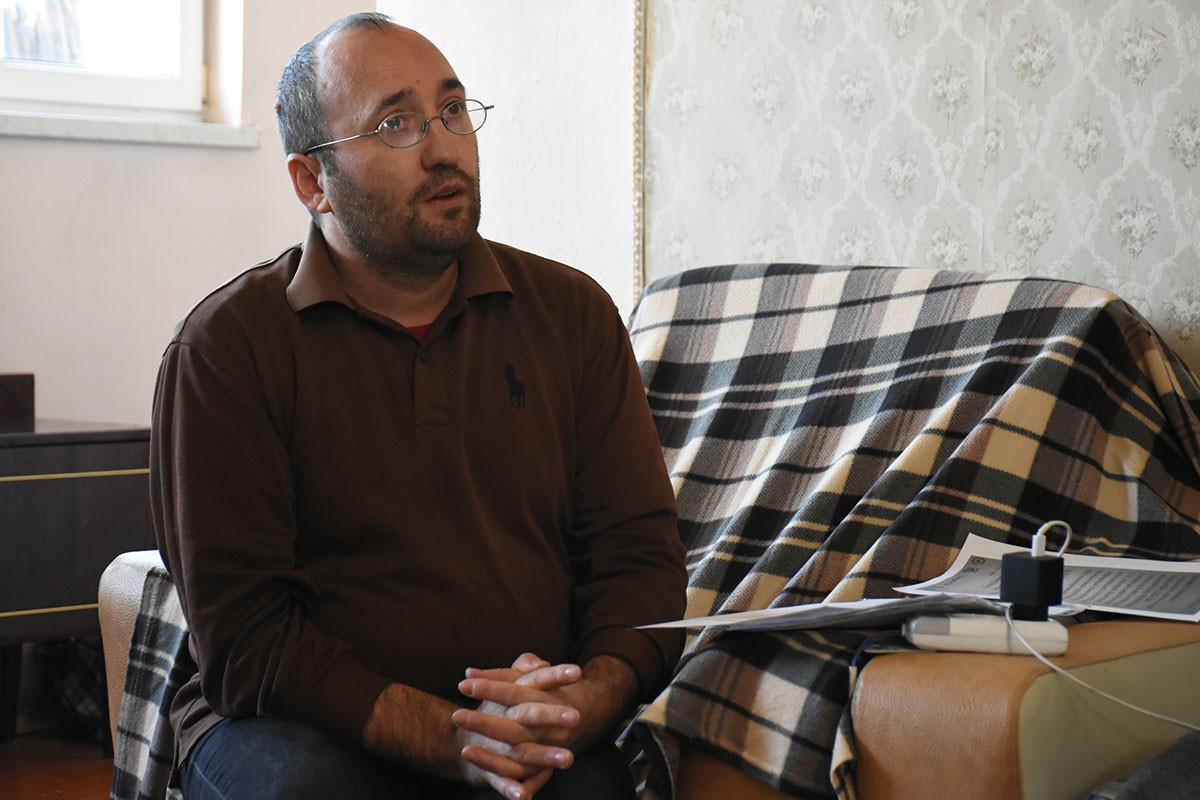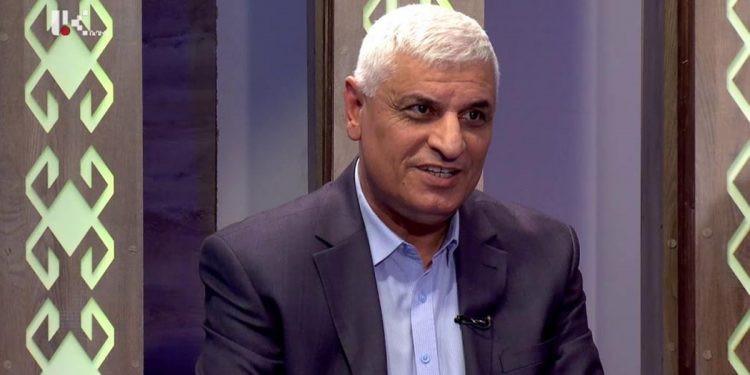
Armenia: Displaced Artsakh Children Face Host of Challenges
Displaced Artsakh children, especially those with special educational needs, face several challenges in Armenia. These run the gamut from psychological, to financial and even linguistic. What follows are some personal stories.
Ten-year-old Roman Bakhshiyan, born in Artsakh, is now adjusting to life in Armenia.
He is the only child of Andranik Bakhshiyan. Mr. Bakhshiyan and his mother raised Roman. All three have disabilities.
The family, like thousands of others, were forcibly displaced from Artsakh. Their new life in Armenia hasn’t been easy.
Roman has been diagnosed with hyperactivity and attention span disorder. During our conversation, he’s constantly fidgeting.
The family now lives in a rented house in the town of Etchmiadzin. Mr. Bakhshiyan says it wasn’t easy convincing landlords to rent them accommodation. People were afraid Roman would be a noisy neighbor.
Mr. Bakhshiyan graduated from the Stepanakert Vocational School and worked in a military clothing shop. Roman went to school and attended a rehabilitation center before the September 2023 Azerbaijani military offensive that forced the family to flee. They lost two houses, one in Stepanakert and the other in Shushi.
Mr. Bakhshiyan has been fighting for his son to continue attending school in Etchmiadzin three times a week with a special educator, a social worker, and a psychologist. He says the boy isn’t ready to attend regular classes and the specialists can’t say when he will be.
The father says taking Roman to special development centers by taxi is financially draining. Classes at the center are free of charge, but transportation costs are prohibitive.
Other families displaced from Artsakh whose children have special education needs echoed Mr. Bakhshiyan’s financial concerns.
"Having a disability is not a stigma, but not everyone thinks so"
Former Artsakh resident Anush Grigoryan is in a quandary as to what school to send her five-year-old son who has cerebral palsy.
The child, who now attends the Noragyugh Rehabilitation Center, is set to start school next fall. Mrs. Grigoryan doesn’t know if she wants to send her child to a public kindergarten.
The school where her daughter attends is small and there are no assistant teachers. Her child walks, but with difficulty, and will need some type of assistance.
"In a private school, apart from the aide, there is also another staffer who helps the children. Private school is expensive, but I must hire someone to help the child even when taking him to public school. It turns out that I will have to pay the same amount,” Mrs. Grigoryan says, adding the biggest problem for children who need special educational conditions is financial. Parents need steady work to be able to provide care and treatment for their children.
Mrs. Grigoryan says Artsakh parents with special needs children are reluctant to speak openly about the problems they face. One of her acquaintances even refused to have their child evaluated, insisting he had no problem.
"Having a disability is not a stigma, but not everyone thinks so. People's legal awareness should be raised so that they understand, but they should also be informed in schools," she tells Hetq.
In September 2023, there were 583 children in need of special education in Artsakh
Lusine Gharakhanyan, the former Artsakh Minister of Education, Science and Culture, notes that inclusive education was mandatory in Artsakh, as it is in Armenia, and the legal-legislative documents were basically the same. It's just that the assessment of children in Artsakh started a little late because there was a lack of specialists.
"Inclusive education was developing and necessary. Children cannot be isolated, and we managed to break the stubbornness of many directors, because the world is moving towards humanization. Although the processes do not prove it, human strata cannot be separated," Gharakhanyan says.
Yuri Karamyan, Director of the Artsakh Assessment and Testing Center, says as of September 2023 there were 583 children with special education needs in Artsakh. Following the 2020 Artsakh War, that number increased because of greater overall stress.
He says inclusive education had been mandatory in Artsakh since 2013.
“We prepared an individual education plan for each child. If a child was assessed as having special educational needs, they continued to study in the school where they were evaluated as such," says Karamyan.
He believes each child has his or her own abilities and that all are special in this regard.
“All of them are our children, and there should be no discrimination. The word inclusive should also be removed from our vocabulary," says Karamyan.
Some 5,000 of the 25,215 school-aged children forcibly displaced from Artsakh and who relocated to Armenia haven’t entered the country’s education system, 16,160 now attend public schools in Armenia. Another 1,689 attend vocational schools.
According to Armenia’s education ministry, 2,597 of the above 25,215 children were initially enrolled in Armenia schools and later, for a variety of reasons, dropped out.
Of the 25,215 children, 167 were assessed as having special educational needs. Another 778, who were never evaluated, nonetheless receive support services provided by either the state non-profit Yerevan Regional Pedagogical-Psychological Support Center or their schools.
Artsakh Dialect - an obstacle to comprehension and an object of ridicule
Elmira Safaryan is a psychologist from Artsakh who worked for four months with children with disabilities displaced from Karabakh.
While she says the families of these children mostly face financial and psychological problems, the kids themselves have a tough time communicating with children their own age in schools in Armenia.
One child told her that the teacher and other kids ridicule children from Artsakh about their dialect. Many Artsakh kids have difficulty speaking literary eastern Armenian.
Top photo AI-generated
Bakhshiyan family photos by Hakob Poghosyan
 Videos
Videos Photos
Photos



Write a comment